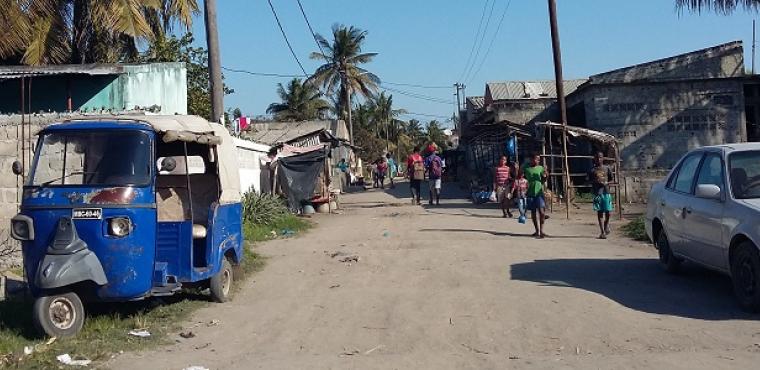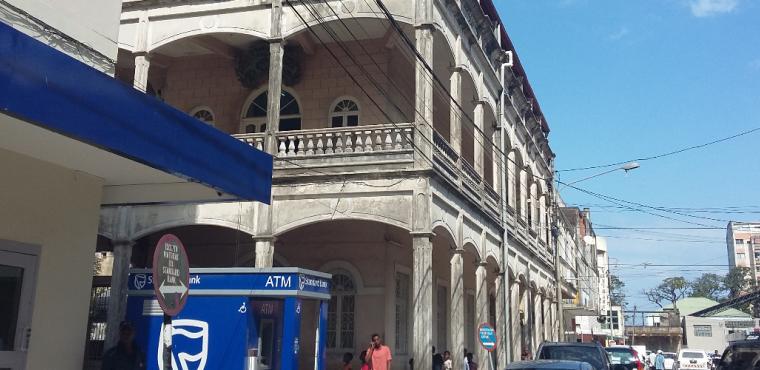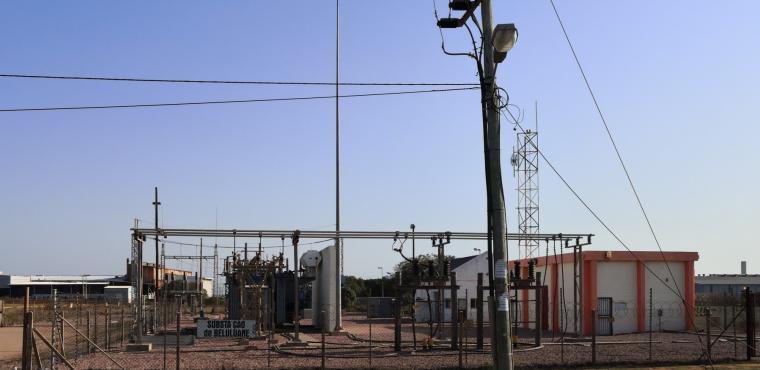
Project Details
Improving grid access and reliability in Mozambique
A political-economic analysis of electricity grid access histories and futures in Mozambique
Background, challenges and context
Against a broader socio-political and economic background of debt, environmental change, and political conflict, Mozambique has relatively low levels of electricity access. Approximately 65% of inhabitants lack a reliable source of electricity, and for the 70% of the population living in rural communities, access rates are around 6%.
Furthermore, electrified urban centres suffer poor service quality. Ageing transmission infrastructure, consumer growth, erratic generation, and extreme weather events exacerbate power cuts and oscillations that disrupt household activities and damage appliances.
Mozambique is rich in energy resources – both renewable (hydro, solar, geothermal, and tidal) and non-renewable (gas and coal) – and has a higher electricity generation potential relative to other Southern African countries. There is potential for the country to become a regional energy hub, providing opportunities for investment and rapid socio-economic development.
However, despite extensive institutional and regulatory reform in Mozambique’s domestic electricity sector over the past two decades, exploitation of energy resources for domestic use remains limited and unevenly distributed. Excessive financial risk factors associated with developing electricity infrastructure make investment unattractive to private sector actors, further inhibiting the supply of affordable and reliable electricity.
Contemporary energy policy in Mozambique is shaped by its political history, and socio-technical systems of energy provision that emerged at the end of Portuguese colonial rule in 1975 – presenting further challenges.
Research overview and objectives
This research focused on a broad energy justice concern: that institutional support and capacity building are needed to deliver a fairer, more transparent, and financially viable electricity system that supports the diverse needs of Mozambicans across rural, urban, and peri-urban communities, under conditions of environmental stress, violent insurgency, and political unrest.
The challenges of sustainable energy access are multifaceted and complex. To understand them better, an empirical analysis is required of the underlying policy and institutional frameworks in which decisions are made. The aim of this project was to enhance this understanding through qualitative inquiry. It focused on the relationship between stated policy goals towards universal electrification advanced by key political and industry actors, and the challenges faced by Mozambican society, including imbalances in power relationships.
Diverse perspectives on electricity access, security, reliability, affordability, and investment/revenue-raising – obtained from a range of stakeholder interviews with households and the public and private sector – were explored across four major cities. The study also examined how competing interests can be accommodated to generate policy solutions across stakeholder networks.
In addition, the team focused on the challenges of efficient energy service provision by examining the efforts of the national public electricity utility Electricidade de Moçambique E.P. (EDM) to achieve the twin goals of revenue raising and fulfilling its social mandate. The team also examined what impacts these efforts have on domestic electricity reliability and affordability, low carbon development, and investment planning.
Research methodology
Field research was conducted between November 2019 and March 2020 in the four largest cities of Mozambique:
-
Maputo – the capital city, located in the southern region, with a 98% electrification rate (the highest in the country)
-
Matola – located in the southern region, with an 80% electrification rate
-
Nampula – located in the northern region, with an 89% electrification rate
-
Beira – located in the central region, with an 88% electrification rate
The team carried out semi-structured interviews with 120 households (in each city, representatives from households in six neighbourhoods – three peri-urban and three urban – were randomly recruited). Interviews with 87 public, private, and donor-level stakeholders were also conducted – including with officials from EDM (at both directorial/managerial and technical/operational levels), IPPs (independent power producers), other businesses, and NGOs.
To contextualise the broader policy landscape in which electricity system governance emerges, the qualitative interview data was supplemented with field observations in each city and reviews of official documents, reports, policy briefs from relevant institutions in the energy sector, and media sources (including TV, print and online newspapers, and social media).
The complete dataset was coded using thematic analysis (TA), common to qualitative interpretation of policies, stakeholder experiences, perceptions, and understandings. TA is based on the identification and assessment of patterns of meaning (themes).
Research results, key messages, and recommendations
Some of the findings were:
-
Mozambique’s contemporary energy system, and its energy access and supply challenges, are rooted in the extractivism of the colonial era, which was characterised by an emphasis on infrastructure provision linking sites of natural resources extraction with roads and seaports to facilitate commodities export, to the detriment of local provision, along with related practices such as land grabbing, and population displacement and dispossession.
-
Ensuring reliable flows of electricity is essential for the functioning of the national economy, but one of the main challenges EDM faces is providing reliable and consistent grid-connected electricity (for urban residents in particular).
-
Many factors contribute to EDM’s challenges, including inefficient and ageing infrastructure, extreme weather events, electricity supply shortages, and insufficient technical staff to cope with operations and maintenance.
-
EDM has decreased the duration of power cuts in all four cities by 15-20% over the past three years, with the exception of Beira, which registered an 8% increase in 2019, likely a result of Cyclone Idai’s infrastructural disruptions. However, EDM still struggles to reach international standards in responding to customers’ concerns, including addressing voltage oscillation and damage to domestic appliances.
-
Matola and Maputo, as the most densely populated cities, registered more power cuts than Beira and Nampula, with many substations and distribution lines frequently overloaded. This suggests that increases in access to electricity should go hand-in-hand with increases in load capacity, monitoring, and maintenance.
-
Given the limited interview sample size, it is not possible to make national-level demographically representative claims. However, the research team believe it is worth noting that the majority (around 60%) of households interviewed in peri-urban areas of Maputo and Matola were dissatisfied with the quality of electricity service provision – specifically frequent power oscillations and outages.
-
EDM has announced plans to increase its electricity generation capacity and supply both domestic and regional markets (e.g. Malawi, Tanzania, Zambia, Zimbabwe, South Africa). The plans aim to address electricity supply shortages, increase the domestic electricity access rate and gain status as a regional energy hub while generating much-needed foreign reserves via energy exports.
-
Most of this planned electricity generation (1,500 MW) is expected to come from the construction of the Mphanda Nkuwa hydroelectric dam, sited 60km downstream from HCB (Cahora Bassa hydroelectric dam). HCB was developed by the Portuguese colonial regime, but the generation capacity surpassed the domestic demand, leading to the long-term agreement with South Africa in 1969 to export 82% of the generation. Mozambique is still tied to the agreement until the end of 2029, currently supplying 65% of the 2,075 MW from HCB’s electricity production.
-
The construction of Mphanda Nkuwa hydropower dam is a ‘resurrected plan’ from the Portuguese colonial period to proclaim the Mozambican sovereignty over the Zambezi River.
-
Similar to HCB production capacity that led to the export agreement with South Africa, the current planned generation capacity (including from Mphanda Nkuwa alone) surpasses the projected domestic demand. Thus, to make use of this excessive planned production, Mozambique is planning to make Mphanda Nkuwa dam a new HCB from the post-colonial era.
-
The team found that although electricity tariffs commonly exceed household budgets, they remain politicised and are not cost-reflective – putting EDM into growing debt and imminent insolvency, hindering its ability to ensure reliable, quality, and affordable services.
-
The electricity reform process has been slow, and the sector continues to have a vertically integrated structure and lacks a strong and transparent regulator.
-
In the team’s assessment, unbundling the electricity sector would enable EDM and the energy regulator Autoridade Reguladora de Energia (ARENE) to be managed independently and reduce state-induced inefficiencies that limit institutional capacity and performance and development of the power sector.
-
An unbundled power sector would also enable ARENE to fulfil its role as an independent regulator, and to oversee compliance, set service quality standards, make transparent and fair decisions on tariffs, and impartially represent stakeholder interests across the sector. Improving transparency surrounding service provision costs would help to increase consumers’ confidence in the relationship between revenue-raising and supply network investments. Stronger enforcement of EDM’s duties towards safeguarding consumer rights and scrutinising the privileging of certain customer groups based on consumption levels (as has been the case with heavy industrial users in Matola) would provide a practical mechanism to advance energy justice by reprioritising access to the poorest consumers.
-
Ensuring ARENE’s independence would also help to reduce market uncertainty, corruption, and poor governance that has constrained investment in and performance and development of the sector, and hence the country’s wider development.
-
Mutually beneficial contracts and unbundling would allow EDM to improve its financial outlook and credibility by revising and stabilising its average annual tariff rates adjustments of 12.3% for the next 22 years.
-
EDM should also update the 15-year-old tariff structure in line with South African inflation. These measures would allow EDM greater capital resources to reinvest in maintaining and upgrading its infrastructure and processes; improve the quality of power supply; and attend to the impacts of the technical and non-technical losses on its financial health and on tariffs.
-
Greater capital would also allow EDM to invest in low-carbon energy technologies, including solar photovoltaics (PV) and wind, furthering a climate change-sensitive energy policy agenda. However, such achievements would require enhanced institutional capabilities to provide the necessary skills, processes, and knowledge for the implementation of projects and for efficient revenue collection to cross-subsidise the electricity infrastructure, while ensuring the provision of affordable and reliable electricity.
-
A better investment environment along with financial incentives (e.g. exemption on import taxes) to implement off-grid energy generation projects would create conditions for secure private investment to boost the coverage of off-grid provision. In turn, this would increase the availability of affordable and high-quality solar-based systems that would increase consumer confidence and garner additional state revenue. Off-grid provision could widen energy access, potentially improve service reliability, and improve the social perception of tariff increases on conventional fossil fuel-based energy sources.
-
There is hope among members of the public that the new electricity law (which was passed in December 2021, and began to be enacted in January 2022) will bring the necessary changes that will facilitate the much-needed reform of Mozambique’s electricity sector, such as on public and private companies’ obligations and rights, including more clarity about IPPs’ rights and obligations to participate in the market and sell electricity within the Southern African Power Pool (SAPP), along with clarity surrounding off-grid electricity generation projects.
The project shows that the multifaceted challenges in providing energy access connect with wider gaps in energy sector reform, while demonstrating that ongoing structural economic and environmental inequalities combine to reinforce a range of constraints faced in the daily lives of Mozambicans.
Local partners
University of Eduardo Mondlane, Maputo (Boaventura Cuamba, Professor of Renewable Energy Physics)
Observatory of Rural Areas (Observatório do Meio Rural – OMR), Maputo (Dr João Feijó, Researcher and Coordinator)
Centre for Research on Governance and Development (CPGD – Centro de Pesquisas sobre Governação e Desenvolvimento), Maputo (Dr Carlos Shenga and Ms Lorraine Howe)





